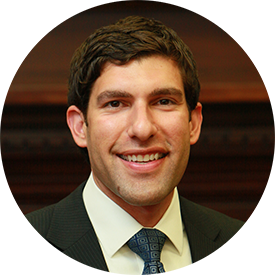Personal Wealth Management / Book Reviews
The Greatest Trade Ever
Gregory Zuckerman's The Greatest Trade Ever not only beat Michael Lewis to the punch, but is a better book about those who profited from the bear market.
I'm not accusing anyone of plagiarism—not at all—but…well, let's just say, as I read Gregory Zuckerman's The Greatest Trade Ever: The Behind-the-Scenes Story of How John Paulson Defied Wall Street and Made Financial History, I, um, realized it's startlingly close in parts to Michael Lewis' The Big Short. (Zuckerman's book predates Lewis' by about five months.)
I don't know if they used similar sources or what (they did write a book about the same thing after all), but adjectives describing certain people and other situations seem very close. Again, I'm not accusing anybody of anything—I don't have the time or desire to conduct such an investigation. It's just an observation to make this point: These two books mostly function interchangeably. So read one or the other, but not both.
That said, Zuckerman's book is a country mile better than Lewis'. (Read my review on The Big Short.) Zuckerman's book is about the main player, John Paulson, and does a better job describing how he profited in the bear market than other books I've so far read. One gets the sense Lewis would have loved to have his book be about Paulson, but couldn't since Zuckerman beat him to the punch, so he had to focus on the smaller players instead.
Don't confuse John Paulson with Henry Paulson, the former US Treasury secretary. John Paulson is a hedge fund manager. And, actually, isn't all that interesting a guy. Zuckerman does his best to make the biographical bits about him seem provocative, but it's a bore and I often skimmed those parts.
The real virtue of this book is its depiction of how Paulson became a billionaire in what some believe to be the most profitable trade in history (estimated to be $15 billion for his fund, and a personal profit of ~$4 billion). What's fascinating isn't just the innovation and forward-thinking required to profit by betting against real estate through this period, but also how difficult it was to do and the sheer determination needed to follow through on it.
Not only did Paulson have the whole world telling him he was crazy to bet against real estate, but most of those who also predicted the downturn in housing couldn't figure out how to actually profit from it. Paulson was one of the very few who did that. In a nutshell, he bought insurance against the failure of CDOs in the form of credit default swaps. This was hugely risky and costly if he was wrong, and very painful for his clients as they continually saw the fund's money used to buy more and more insurance contracts. It took awhile for the bet to blossom, and for a long time Paulson looked wrong.
From this, there are two important points for long-term investors.
First, the "biggest trades" just about always come from folks like Paulson because the best investors who think long-term never go for broke like this—they're not even interested in betting the farm on a single, high risk/return scenario. That's why it's treacherous for long-term investors to regard the Paulsons of the world as ever-prescient gurus. They're really all-or-nothing types who hit the jackpot. Let's not forget the very many hedge funds that went bust too, and also that such things are not repeatable and Paulson has no prior or post history of being so "genius"-like. So let's not mistake him for Warren Buffett. The best long-term managers can be wrong through periods such as these but still achieve their clients' ultimate investing goals—a very different game than Paulson's.
But, let's also give Paulson a ton of credit. I still marvel at the kind of fortitude it must have taken to persevere with this trade…to be wrong for months and years, yet remain fully convicted and to keep pouring money into CDS contracts with no return. This is a tremendous feat and the stuff market legend is made of.
Second, let's not vilify him. There's no point. Populist politicians will always react to public anger when we see someone profit from plight. But plenty of investors benefit through upheavals and bear markets all the time. And we don't have to love them, but we should at least respect them—there's always someone on the other side of a trade.
In April, Paulson's fund was mentioned in court fillings against Goldman Sachs where it's alleged Goldman "materially misstated and omitted facts in disclosure documents for a synthetic credit default obligations (CDO)" to which Paulson's fund was attached. As of now, Paulson's fund specifically isn't being sued, and it should stay that way.
Ultimately, this book is a good accounting of the frothiness of the housing market in the middle of the last decade. Like most of the crisis books I've reviewed in this space, it fails to sufficiently link how those problems infected equity markets and the broader economy. But, if you want to know how one of the most famous bears of the decade made his one killer trade, this is the right book.
If you would like to contact the editors responsible for this article, please message MarketMinder directly.
*The content contained in this article represents only the opinions and viewpoints of the Fisher Investments editorial staff.
Get a weekly roundup of our market insights
Sign up for our weekly e-mail newsletter.

You Imagine Your Future. We Help You Get There.
Are you ready to start your journey to a better financial future?

Where Might the Market Go Next?
Confidently tackle the market’s ups and downs with independent research and analysis that tells you where we think stocks are headed—and why.





